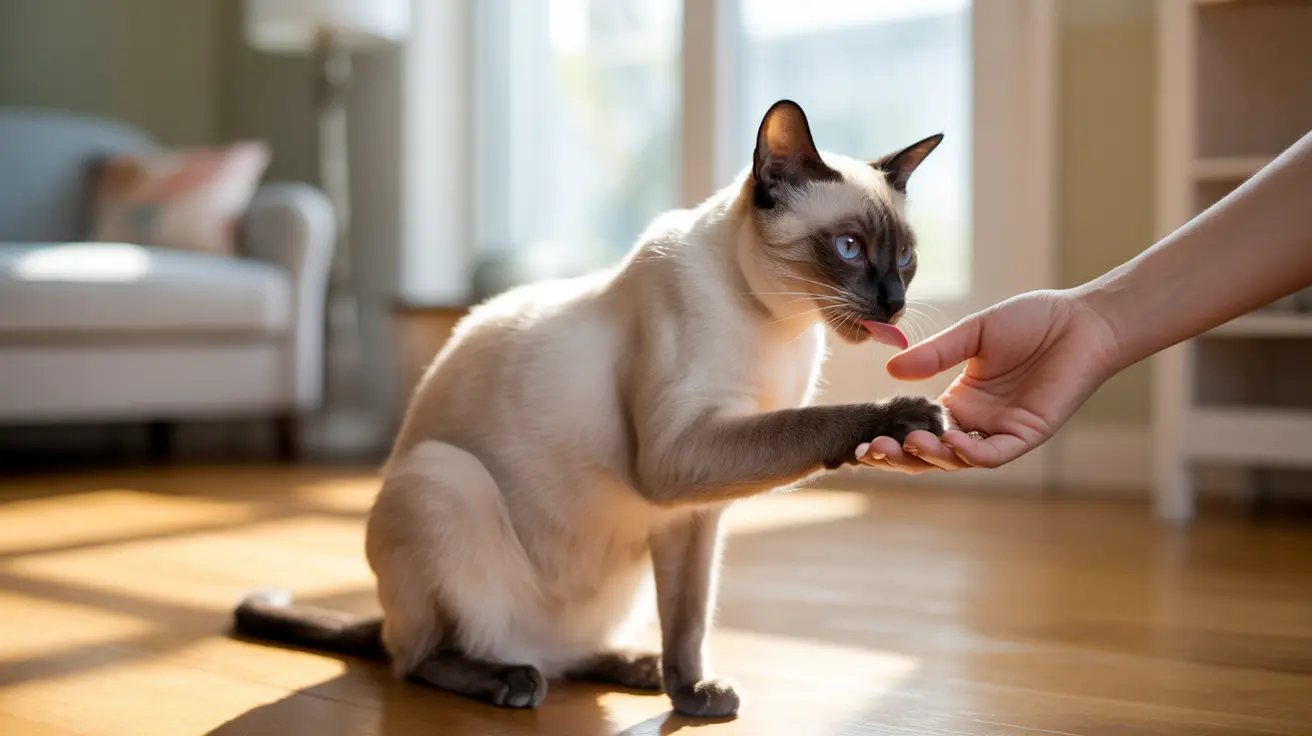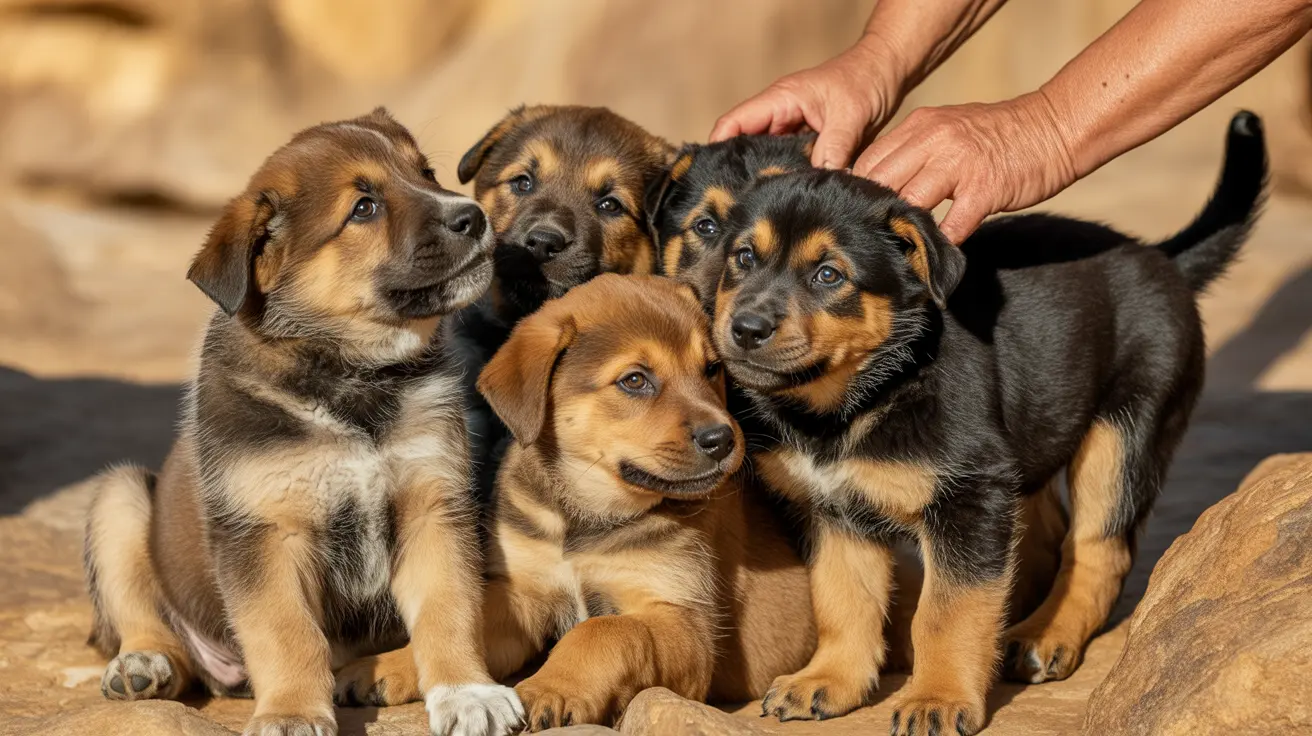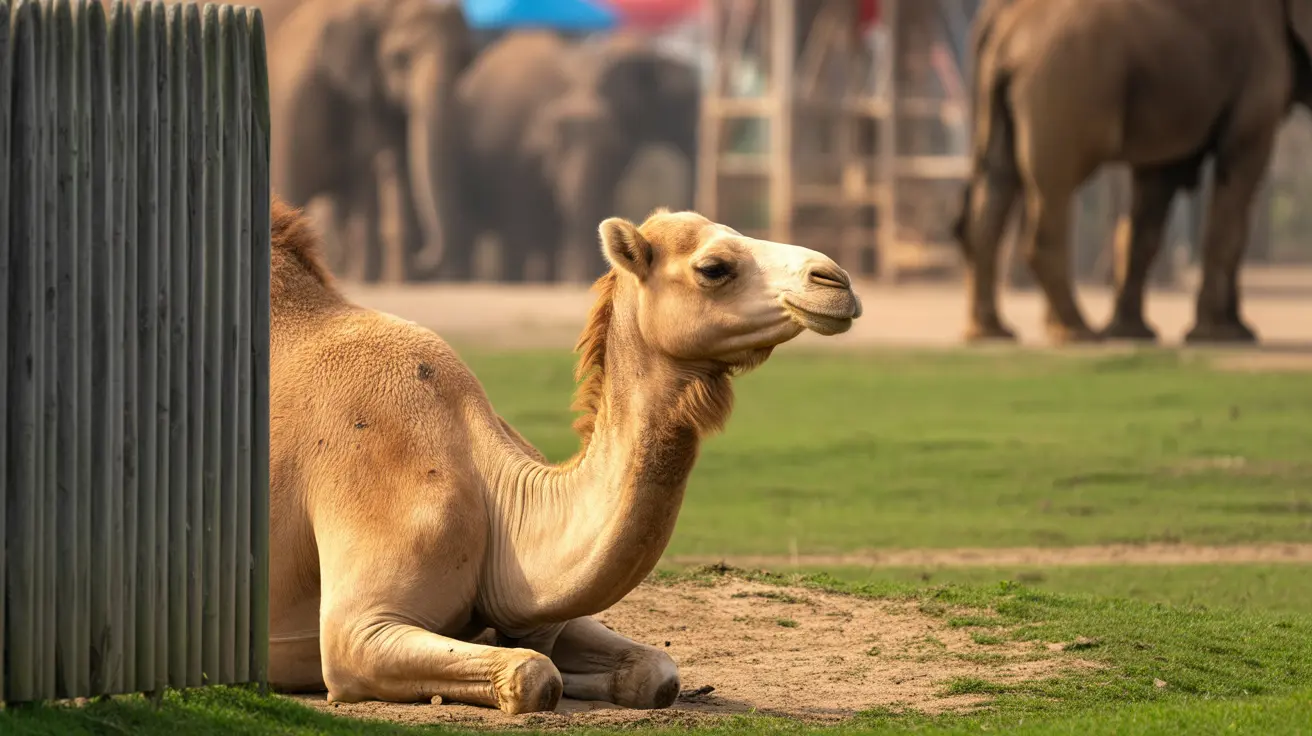If you're a cat owner, you've likely experienced those sandpaper-like kisses from your feline friend. When your cat licks your hand, they're engaging in a complex behavior that carries multiple meanings in the fascinating world of feline communication. Let's explore why cats perform this endearing gesture and what it reveals about your relationship with your pet.
The Deep Bond Behind Hand Licking
When a cat licks your hand, it's primarily a sign of deep affection and trust. This behavior stems from their earliest days as kittens, when their mother would groom them for both hygiene and bonding. By licking your hand, your cat is treating you as a valued member of their family group, showing the same care and attention they would give to a beloved feline companion.
This grooming behavior, known as allogrooming, is a significant social bonding mechanism in the feline world. When your cat extends this courtesy to you, they're essentially saying, "You're one of us, and I care about you."
Social Bonding and Scent Marking
Cats are territorial creatures who use scent marking as a way to establish their domain and identify family members. When your cat licks your hand, they're depositing their scent through their saliva, effectively marking you as part of their territory. This behavior helps create a familiar, comforting environment where everyone in the household carries the same group scent.
Communication Through Licking
Your cat may also lick your hand as a form of communication. They might be seeking attention, requesting food, or expressing contentment. Some cats learn that licking their owner's hand is an effective way to get what they want, whether it's playtime, treats, or simply more attention.
Health and Behavioral Considerations
While hand licking is generally normal and healthy, excessive licking might indicate underlying issues. Stress, anxiety, or medical conditions can cause compulsive licking behaviors. If your cat suddenly increases their licking frequency or shows other behavioral changes, it's worth consulting with your veterinarian.
The Curiosity Factor
Sometimes, cats lick hands simply out of curiosity. Your skin might have interesting scents or tastes from food, lotions, or even natural salt from sweat. This investigative behavior is normal and shows your cat's natural interest in their environment.
Frequently Asked Questions
Why do cats often lick their owners' hands as a way to show affection?
Cats lick their owners' hands as a learned behavior from kittenhood when their mothers groomed them. This action releases feel-good hormones and serves as a way to show trust and affection, similar to how cats bond with other feline family members.
How can I tell if my cat is licking me for attention rather than affection?
Attention-seeking licking is often accompanied by other behaviors like meowing, pawing, or following you around. If the licking stops once you provide attention or food, it was likely a request rather than pure affection.
What does it mean when a cat licks someone excessively—is it normal or a sign of a problem?
While occasional licking is normal, excessive licking might indicate anxiety, stress, or medical issues. If your cat's licking becomes compulsive or is accompanied by other unusual behaviors, consult your veterinarian.
How do cats use scent marking when they lick humans, and what does it signify?
When cats lick humans, they leave their scent through saliva, marking us as part of their territory and family group. This scent marking helps create a unified group smell and reinforces social bonds within the household.
Is it normal for my cat to lick my hand after I eat or apply lotion—what might be drawing their attention?
Yes, this is normal curious behavior. Cats are attracted to new or interesting scents and tastes on your skin. Food residue, lotions, or even natural oils can spark their interest and trigger investigative licking.






